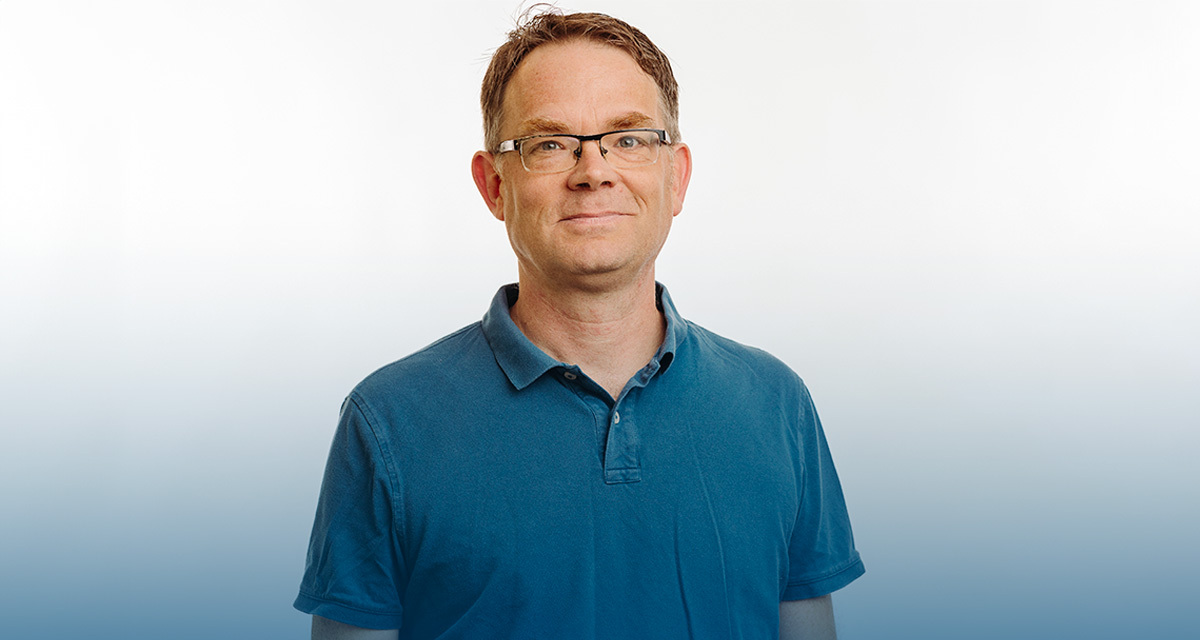Navigating Political Discontent: Dr. Paul Brink’s Search for Fairness and Justice
As the presidential campaigns for the 2024 election season start to heat up many Americans are already exhausted thinking about politics—about 65 percent, according to the Pew Research Center. Nearly 28 percent express unfavorable views of both parties, and 63 percent of Americans say they are dissatisfied with the candidates who have emerged so far. Positive views of many governmental and political institutions are also at historic lows: just 16 percent of the public says they trust the federal government always or most of the time, and only 4 percent of U.S. adults say the political system is working extremely or very well.
Dr. Paul Brink, professor of political science, spent his sabbatical exploring reasons behind this political dissatisfaction and seeking to find a different approach to fairness and justice. According to Brink the political theories and traditions that have long sustained American political life are breaking down and coming to an end. Our country is in desperate need of a theory of justice that takes better account of the diverse communities and identities of American society.
The Collapse of Liberal Theory
A specialist in political theory, Brink has spent his career examining the political theories of America and other nations. America, he says, is distinctive for its singular dependence on liberalism—not in the sense of modern-day “liberals” or left-leaning ideology but rather in its emphasis on autonomous individuals as the building blocks of society, more foundational than groups, communities or institutions.
For all its merits, the problem with liberalism, Brink says, is that this near-exclusive focus on the freedom of the rights-bearing individual has consequences for a society that is actually made up of families, churches, neighborhoods, faiths and many other communities. “Of course the individual person is important, but to focus so much on our individual rights and liberties risks forsaking our neighbors and communities—especially if they seem different from us,” he says. Brink believes this is the disease causing the political fatigue and societal unrest in our nation.
“I think there is a concern more than ever as to whether the center can hold; there are signs that our current political consensus is seriously frayed,” he says. “And so that gives a certain urgency to this kind of work, which isn’t surprising because of how divided we are. We’re seeing this attitude of, ‘You’re not like me, so therefore I’m not going to even talk to you. My goal is not simply to outvote you, it’s to remove you.’”
The Search for Covenantal Pluralism
For Brink the way forward from outvoting or even removing one another is to seek new ways we can encounter each other. Enter political pluralism: a theory that emphasizes the “manyness” of our social lives, rather than reducing that social life to individual preferences.
Brink is exploring a theory that some scholars describe as “covenantal pluralism.” It posits that political society is the result of groups, communities and institutions making relationship-based covenants with each other instead of individually based interactions. Brink believes this approach may help individuals and groups navigate their differences.
“Humans are, on some level, fundamentally the same,” Brink says. “To exclude people from certain spaces is arbitrary and a waste of our talent. And yet we’re also special in the ways we are different from each other. To ignore those differences would be to dishonor ourselves and others. So how do we find the middle ground? A pluralist political theory attempts to see our differences not as problems that we need to solve but as resources upon which we can depend.
“Given the range and the scale of the problems confronting American society, we need as many resources from as many voices as we can get. Just as Gordon College conversations are richer, not poorer, by welcoming students from different Christian traditions, so America’s public conversations are richer, not poorer, by inviting citizens and communities to express and practice their deepest commitments in their public political lives.”
The Christian’s Place in Politics
As Christians who believe in a God who loves justice, Brink says, we’re needed in political offices and conversations now more than ever. This is what Brink is preparing his students at Gordon to pursue. His classes don’t shy away from tough political questions and conversations, such as “Can war ever be just?” and “Is affirmative action a fair policy?”
Now, after his sabbatical, Brink and his students are also discussing the 2024 election and the idea of a new political order under pluralism—would it work? Why or why not? Gordon students can be found across the entire political spectrum, but Brink has found that often they’re able to disagree well because of their commitment to the same faith. “Politics can be so fun to talk about! The news makes it look so hard and difficult, but it’s almost like a great book club. The students are so earnest and take their responsibility so seriously,” Brink says.
While Christians don’t need to acknowledge every idea, religion or political view as equally true, if we’re going to repair our politically broken society with a new order, we need to respect these differences, Brink says. Christians should pursue political offices, not to force our beliefs on others, discriminate against non-Christians or privilege Christians politically, but rather to love our neighbors, even the ones we wildly disagree with. Establishing agreement nonviolently is the whole point of politics, he claims.
“Politics and tough conversations are not where Christians should be hesitant to go—it is where we are most needed. The way to love your neighbor politically is to seek justice for your neighbor.”
Dr. Paul Brink
 The Bell
The Bell